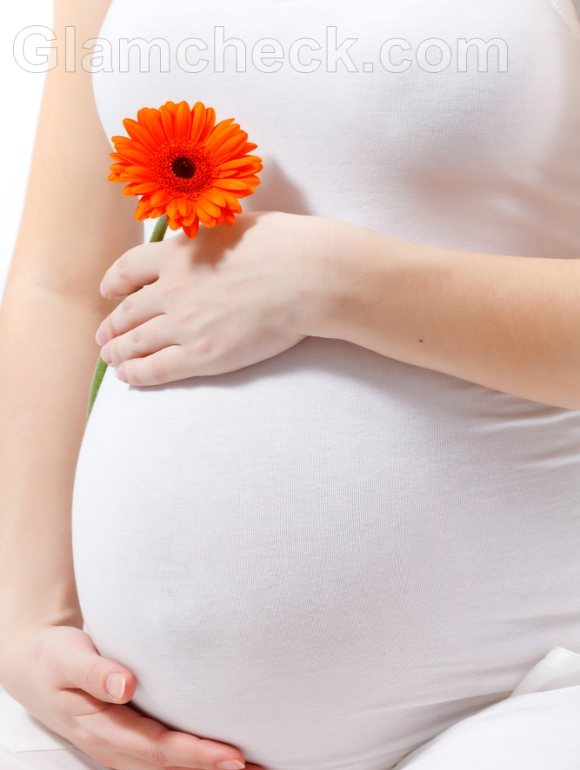Pregnancy is a long and complex process of growth, change and life. Your body has to do a million things that you are not even aware of. It has to take care of you and the life that is growing inside you. So how does your body know just what to do when you are pregnant? Well, you could say that it’s all in the pregnancy hormones.
 To understand how pregnancy hormones help your body through those nine months, you have to first be clear about what hormones are and the role that they play in a normally functioning body.
To understand how pregnancy hormones help your body through those nine months, you have to first be clear about what hormones are and the role that they play in a normally functioning body.
What are hormones?
Your body is made up of trillions and trillions of cells. Each cell is a self-sustaining life system that is individually capable of accomplishing anything that your whole body can perform. Every cell will do the task that is required of it to ensure smooth functioning of your body as a whole. But the cells will not perform the task unless they receive a signal telling them what needs to be done.
Hormones play a huge role in the functioning of the human body. It is the hormones that tell the cells what to do and when. Anything that your body does at any time is the result of carefully relayed messages by the hormones to the cells.
People who have a hormonal imbalance experience several unpleasant side-effects precisely because the delicate balance is disrupted and there is a sort of miscommunication between hormones and cells, which causes the cells to behave abnormally.
Pregnancy hormones are released after implantation has successfully taken place. Implantation is when the pre-embryo (egg that has been fertilised by sperm) travels to the uterus and attaches itself to the uterine wall. It then releases a hormone called hCG or human chorionic gonadotropin, better known as the pregnancy hormone.
This is the first of the pregnancy hormones that is released by the body. From that point until a few months after you have had your baby – yes, even then – your body will continue to produce a variety of pregnancy hormones as and when pregnancy changes are meant to occur that your body and baby have to prepare for.
What are some of the major pregnancy hormones?
Your body produces hundreds of pregnancy hormones. Here are the most important pregnancy hormones that have the most profound effect not just on your body, your baby and your moods.
- hCG – This is considered to be the most important of all pregnancy hormones. All those annoying early pregnancy symptoms like nausea, fatigue, the need to pee all the time can be blamed on the production of hCG. These pregnancy hormones spur the production of the other hormones required for the pregnancy to progress smoothly, namely estrogen and progesterone. However, in the second trimester the placenta takes over that task so the levels of hCG in the body start to decrease at that point.
- Luteinizing Hormone (LH) and Follicle Stimulating Hormone (FSH) – Although these hormones are not at work anytime during your pregnancy, they nevertheless play a role in the regulation of your menstrual cycle. Without these two hormones, you would not have your period at all. That is why they are still considered to be pregnancy hormones since their absence could cause problems in getting pregnant.
- Estrogen – This all-important female hormone is first produced by the ovaries and then by the placenta as the pregnancy progresses (usually by the second trimester). Estrogen is what will cause the uterus to grow to accommodate the developing foetus. It also maintains the structure of the uterine wall so that your baby is comfortably nestled in the womb. In addition, it is also responsible for the production of other pregnancy hormones. Estrogen is produced in vast quantities throughout the pregnancy for hundreds of reasons. It is involved in preparing your breasts to produce milk, increasing blood flow in your body, as well as developing the organs and bones in your baby. All in all, this is one busy hormone.
- Progesterone – Produced by the placenta, progesterone is just as ‘busy’ as estrogen. Progesterone is responsible for the overall smooth functioning of the pregnancy. These pregnancy hormones keep the placenta and uterine wall in peak condition, and with realxin (another pregnancy hormone) softens cartilage to create room for your growing baby. Acne during pregnancy, aches in the joints, heartburn, constipation, and bleeding gums are all effects of huge amounts of progesterone being produced in your body during pregnancy. Estrogen and progesterone are the pregnancy hormones that are equally to blame for the extreme mood swings experienced by most women during pregnancy.
- Prolactin – The main milk-producing hormone. Also thought to bring a mother’s nurturing instincts to the fore. Prolactin may induce the growth of extra hair on several parts of the body.
- HPL – Human placental lactogen, technical term human chorionic somatomammotropin, is one of the pregnancy hormones that prepare your breasts for milk production.
- Relaxin – This most blessed of all pregnancy hormones is what loosens your cartilages and muscles around the pelvis so that you can push your baby out. Without relaxin, labour would be much, much harder than it already is.
- Oxytocin – These pregnancy hormones are what cause contractions. Oxytocin also helps the muscles of the breasts to contract so that the milk can get pushed out.
Image: Shutterstock
